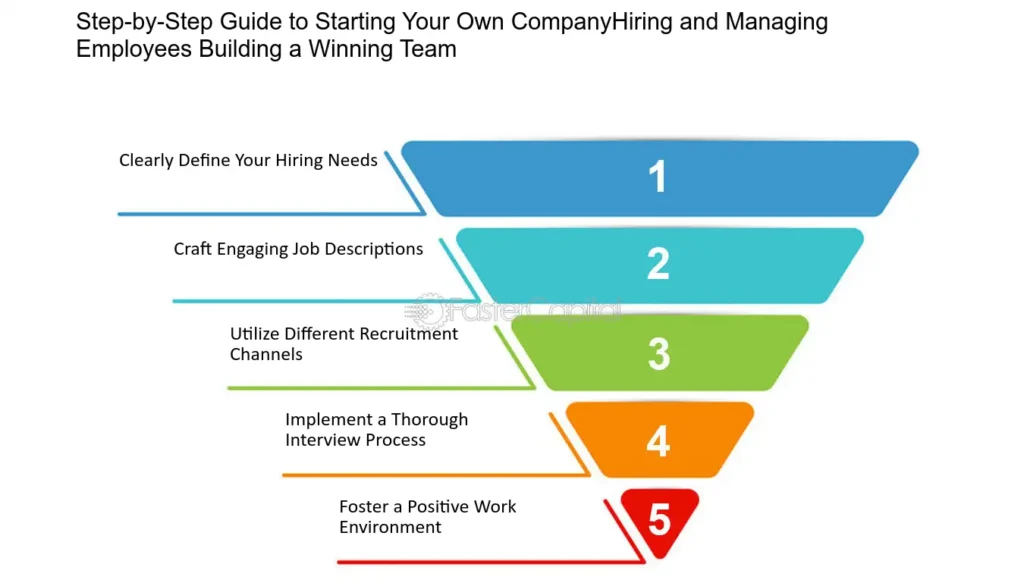Having a Legally Sound Company Structure
Selecting the correct legal entity affects the entire process from operating freedom to access to funds, tax responsibilities and ownership rules. While their simplicity may be appealing however, sole proprietorships do not provide protection against personal liability. However, limited liability companies (LLCs) safeguard personal assets as well as provide tax management and flexibility. Though they are more complicated, corporations–especially S-Corps and C-Corps–are often required for startups looking for venture capital or stock options.
A structure must reflect the future plans and the current characteristics of the company. Delaware C-Corp is often chosen for companies that want to expand or attract investors due to its clear corporate law and favorable treatment by venture capital firms. However the rules for compliance and documentation are more complicated. Although LLCs aren’t always attractive in the eyes of investors, they could be a great option for small companies seeking to cut costs and keep accounting simpler. The early mistakes in structural design can cause rebuilding to be expensive and time-consuming later.
Making Sense of the Complicated Web of Federal, State, and Local Registrations
The process of starting a business requires layers of compliance across several jurisdictions, not simply filling out one form. Federally-level hiring and opening bank accounts and tax filing all require the issuance of An Employer Identification Number (EIN) from the IRS. Beyond that, every state has its own requirements. Based on the type of business, certain states require specific franchise tax registrations, annual report filings, or even special disclosures.
Beyond state-level documentation Local governments may also require permits for business, zoning approvals or health permits. If employees of remote tech companies are located in multiple locations, they might be required to register in a variety of states. In the absence of these obligations, they could result in fines and business rights being taken away or tax issues. Being aware of these obligations early will ensure that your company is in good condition and helps avoid costly delays with the application process for grant or loan applications to growing activities.
Writing Founders’ Agreements to Avoid Conflicts

Handshake agreements and verbal agreements could quickly cause issues when a number of founders are involved. Legal safety nets that define roles and responsibility, ownership of equity as well as decision-making authority and vesting schedules–the agreement of the founder is a necessity. It will also outline what happens if founders quit or not meet the expectations for performance. These agreements reduce doubt and promote accountability within the team as a whole.
Based on the assumption that trust between founders is sufficient, early stage businesses often make the error of delaying formal agreements. However, the majority of disputes center around company’s goals, IP ownership, and equity distributions. Solving these issues is difficult and legally uncertain without a formal agreement. A properly written agreement not only can prevent misinterpretation in the future but also provides investors with peace of mind knowing that the team that founded the company is professionally managed. It is important to clarify expectations in order to ensure relations and ensure business continuity during difficult times.
Use a Attorney to Avoid Legal Traps
In the beginning of a start-up, legal mistakes can arise from oversights and not intentional errors. Serving as an expert in legal matters and also an unbiased guide an lawyer for business startupshelps to identify potential risks and design a plan suitable for the future direction of the company. From determining the best organization structure to negotiating employee rules and drafting term sheets engaging legal counsel at the beginning of the process helps establish credibility and operational integrity.
Startups may face particular challenges dealing with non-compete clauses, for example or making SAFE as well as convertible note contracts, and assigning stock to employees who are early. An experienced lawyer with experience in startups will ensure that each contract, filing or partnership is compliant with the law and industry expectations as she knows the nuances. Negotiating with investors, integrating co-founders or managing intellectual property protection needs additional legal assistance. The work of attorneys is all about creating an infrastructure that is completely free of issues, and not about solving problems once they arise.
Protecting Intellectual Property Rights to Support Creation

To maintain competitive advantage, you must protect the branding, product design tools, creativity assets and technological capabilities. Not only do trademark registrations as well as copyrights, patents, and trademarks ensure against theft and piracy, but it also increases the value of your company and increases investor appeal. Competitors are able to copy the brand’s name features, trademarks or challenge the ownership of proprietary technology without the proper protection.
The approach to intellectual property has to be adapted to the capabilities of the start-up. Trademarks can help customers differentiate their products by protecting the brand’s logos, brand names and slogans. Copy protection is provided for graphic and written documents, such as web pages, designs for apps and marketing materials. The most innovative hardware, systems, and software algorithmic designs all rely on patents. Startups often ignore this step because they believe that they are too young to be worried about the possibility of infringement. Registration early ensures legal rights and aid in avoiding conflicts later on. A clear IP ownership guidelines with developers and contractors can also help to stop third-party claims. A solid IP strategy can help your company to stand out as a leading rival in its field.
Conclusion
The process of starting a business involves creating a legal company that can expand as well as protect investors and not just making a statement about an idea. Each decision, which includes agreements and compliance, as along with structure, determines the future. In a competitive market it is possible for a company to stand out and is more vocal and performs better when these basic actions are carefully considered.





